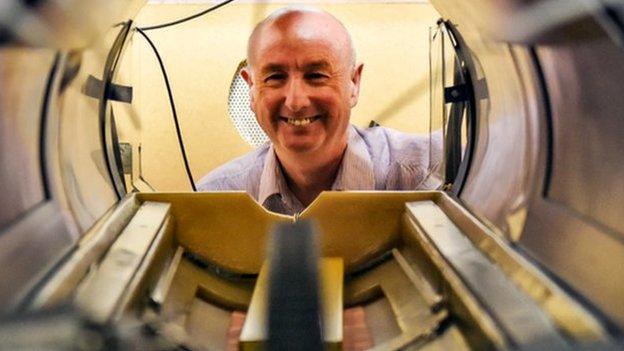Volunteers needed for new type of MRI scanner in Aberdeen
- Published
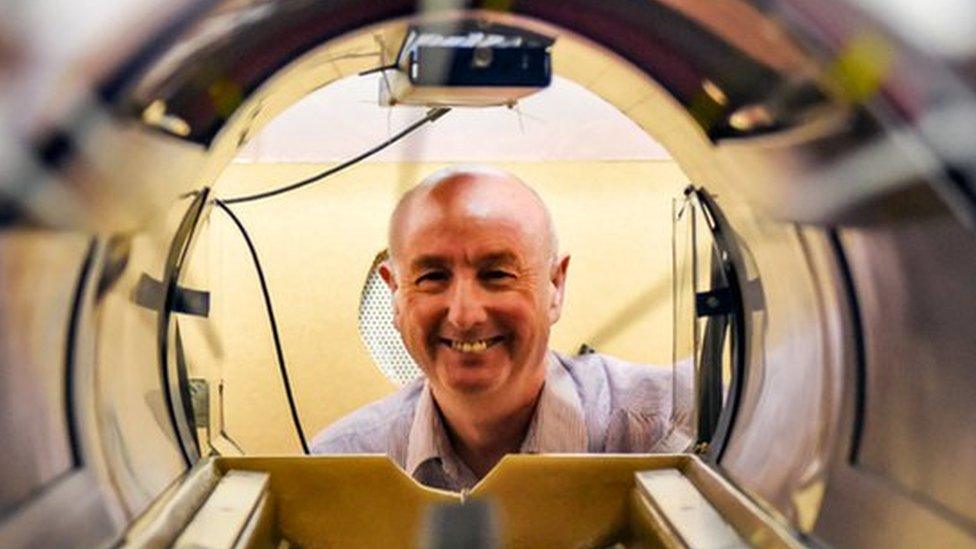
Prof David Lurie said volunteers will play a vital role
Women are being sought to help with the testing of a new type of MRI scanner in Aberdeen to help battle breast disease.
The world's first full body Magnetic Resonance Imaging machine was developed in Aberdeen and scanned its first patient in 1980.
The latest technology, developed by the University of Aberdeen, is called Fast Field-Cycling MRI.
It uses a magnetic field along with pulses of radio waves to detect body tissues change.
The team is seeking healthy women from Aberdeen and Aberdeenshire to help in testing and calibration of the scanner, in the hope it could provide doctors with more reliable information about breast disease.
Researchers need to understand how healthy breast tissue looks to the new scanner, helping them to correctly identify indications of disease in future scans of patients.
The team hopes this will lead to earlier diagnosis of breast cancer.
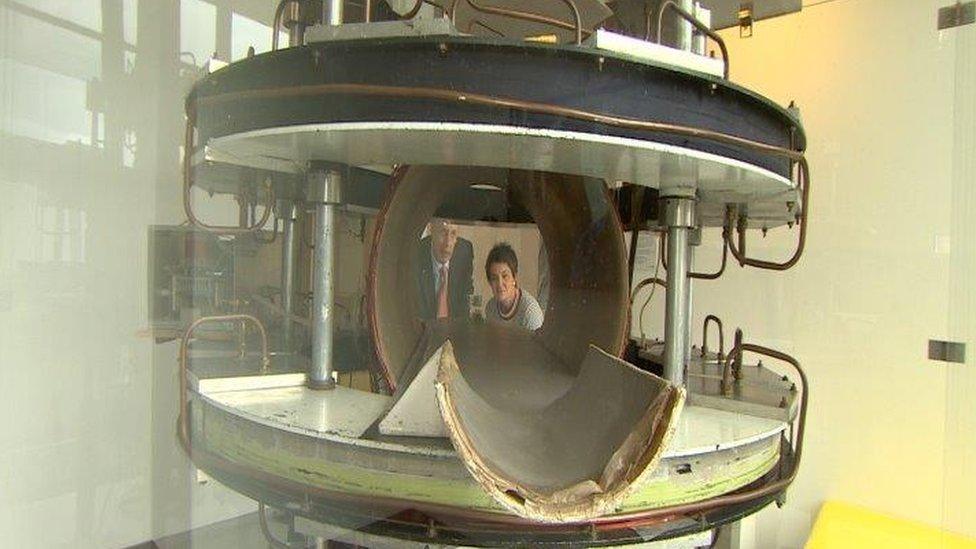
The original machine is now on show at Aberdeen Royal Infirmary
Prof David Lurie said: "Participants will play a vital role in progressing this new technology, by helping us understand more precisely the markers of healthy breast tissue.
"Volunteers will be able to get a first look at some exciting new technology that won't be commercially available for years yet, and they will help Aberdeen lead on this important work, which we hope will save the lives of women.
"The process is entirely safe and should take no more than an hour of each volunteer's time."
The research team is currently looking for healthy female volunteers to undergo three separate breast scans throughout their menstrual cycle.
Volunteers must be aged 16 and over and have a regular and stable menstrual cycle. They must be premenopausal and must not take the contraceptive pill or any other form of hormone therapy.
Potential participants can contact Stacey Dawson, the project's clinical studies co-ordinator, by emailing stacey.dawson@abdn.ac.uk
- Published10 September 2018
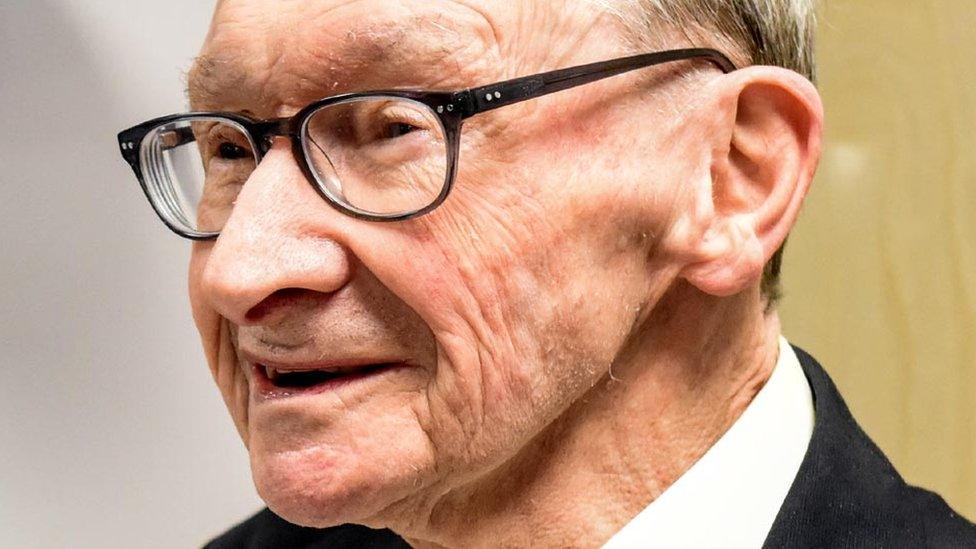
- Published4 July 2018
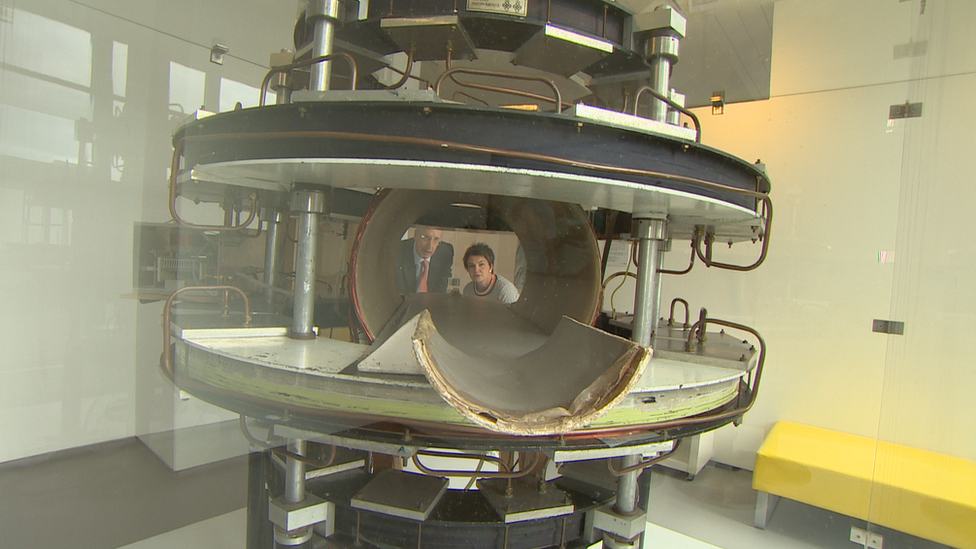
- Published21 November 2017
